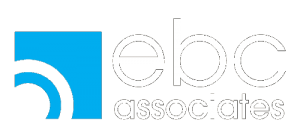Artificial Intelligence (AI) has become a transformative force in the job market, reshaping the way companies hire talent and altering the landscape of various occupations. As organizations increasingly integrate AI into their processes, it is essential to understand how AI is impacting jobs and influencing hiring practices. In this article, we will explore the multifaceted effects of AI on employment and the evolving dynamics of the hiring process.
- Automated Recruitment Processes: AI is streamlining the recruitment process by automating repetitive tasks such as resume screening and initial candidate assessments. Advanced algorithms analyze resumes, identify relevant skills, and match candidates with job requirements more efficiently than traditional methods. This automated screening expedites the hiring process, allowing recruiters to focus on strategic aspects of candidate evaluation.
- Talent Acquisition: AI-driven tools are increasingly utilized in talent acquisition to identify and attract top talent. Machine learning algorithms analyze vast datasets to predict candidate success based on historical performance data. This enables recruiters to make data-driven decisions, reducing biases and improving the overall quality of hires. AI also assists in identifying passive candidates who may not be actively seeking jobs but possess the accurate skills required.
- Impact on Entry-Level Jobs: The integration of AI has a notable impact on entry-level jobs, especially those involving routine and repetitive tasks. Automation may replace certain manual roles, requiring a shift in focus towards skills that complement AI technologies. Entry-level job seekers are encouraged to develop skills in critical thinking, problem-solving, and adaptability to remain competitive in an evolving job market.
- Skills Redefined: The advent of AI necessitates a redefinition of the skills that are highly valued in the job market. While technical skills related to AI and data analysis are in demand, soft skills such as emotional intelligence, creativity, and adaptability become increasingly important. Employers seek candidates who can collaborate effectively with AI technologies and bring a human touch to complex problem-solving.
- Job Displacement and Upskilling: AI’s impact on jobs is not uniform, and certain roles face the risk of displacement. However, this also prompts a need for upskilling and reskilling initiatives. Organizations are investing in training programs to equip their workforce with the skills required to collaborate with AI technologies. Job seekers and employees must embrace lifelong learning to stay relevant in a job market shaped by continuous technological advancements.
- Creating New Job Roles: While AI may automate certain tasks, it also creates new job roles and opportunities. AI specialists, data scientists, and experts in AI are increasingly in demand. The development, implementation, and maintenance of AI systems require skilled professionals, opening up avenues for those with expertise in AI-related fields.
- Enhancing Workplace Diversity and Inclusion: AI can play a crucial role in enhancing workplace diversity and inclusion by minimizing biases in hiring processes. AI algorithms can be designed to focus solely on skills and qualifications, reducing the influence of unconscious biases that might exist in traditional hiring practices. This contributes to a more diverse and inclusive workforce.
In conclusion, AI’s impact on jobs and hiring practices is undeniable, bringing both challenges and opportunities. As the job market evolves, individuals and organizations must adapt to the changing dynamics. Embracing AI technologies, upskilling in complementary areas, and fostering a culture of continuous learning are essential for staying competitive. While some roles may face displacement, the overall impact of AI on job creation, diversity, and efficiency paints a promising picture for the future of work. As we navigate this transformative era, collaboration between humans and AI will be key to unlocking the full potential of both technology and talent in the workplace.

